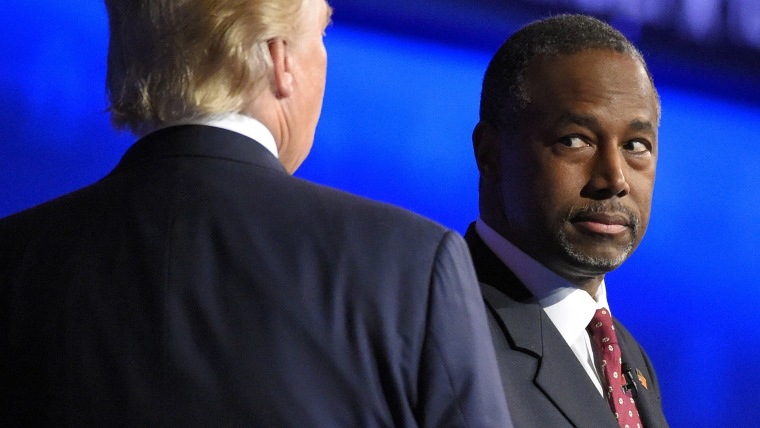When it comes to Donald Trump, his administration, and his problems with race, there are two broad categories to keep in mind. The first has to do with rhetorical divisions.
The president, for example, relied on overt racism to get elected, and proceeded to use his office to ignite ugly and wildly unnecessary racial controversies. As we recently discussed, this was obvious when Trump offered public praise for racist protesters in Charlottesville, but it's been equally clear with his efforts to generate public disgust for African-American athletes protesting racial injustice, his behind-the-scenes references to "shithole countries," and the vigor with which he questions the intelligence of his black critics.
But the other problem is focused on policy and the substance of governing. Take yesterday's news, for example.
Housing and Urban Development Secretary Ben Carson is taking new steps to roll back an Obama-era rule intended to combat housing segregation.On Monday, the Trump administration formally began the process of revamping a 2015 rule that required cities and towns to examine historic patterns of segregation and create plans to combat it, or lose federal funding.
Sara Pratt, a former Obama official who helped develop the rule, told NBC News that the Trump administration's moves would enable communities to ignore long-standing barriers to fair housing and integration.
"You're going back to communities willfully blinding themselves to patterns of segregation," said Pratt, whose law firm is representing a coalition of groups suing the Trump administration for its earlier efforts to suspend the rule. "Without this rule, communities will not do the work to eliminate discrimination and segregation."
Circling back to our earlier coverage, his comes on the heels of the Trump administration issuing new federal guidance to educational institutions, urging them to stop considering race as a factor in school admissions, scrapping an Obama-era policy.
Trump’s Consumer Financial Protection Bureau, meanwhile, has also stripped enforcement powers from the CFPB’s office responsible for pursuing discrimination cases. As the Washington Post reported, the Office of Fair Lending and Equal Opportunity “previously used its powers to force payouts in several prominent cases, including settlements from lenders it alleged had systematically charged minorities higher interest rates than they had for whites.”
The unit will apparently still exist, but it’ll focus on “advocacy, coordination and education,” instead of enforcement and oversight.
Making matters slightly worse, Trump’s Justice Department has “effectively shuttered an Obama-era office dedicated to making legal aid accessible to all citizens,” which also appears likely to adversely affect minority communities.
Confronted with accusations of racism, Trump routinely presents himself as a champion of communities of color. The White House occasionally echoes the claims, leading to yesterday's embarrassing claims about job creation for African Americans.
But the gap between the image the president is trying to present and what the president and his team are actually doing is tough to ignore.
